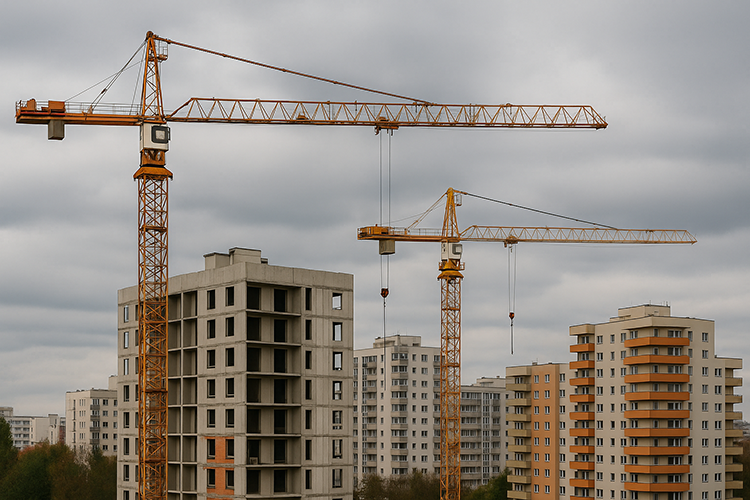2025-10-07
residential

The Czech construction sector recorded strong growth in August, marking its tenth consecutive month of expansion, according to data released by the Czech Statistical Office (ČSÚ). Overall construction output rose by 17.1 percent year-on-year, driven mainly by civil engineering and infrastructure projects. However, while the national trend shows clear recovery, the housing situation in Prague remains critical. Despite sustained demand, the number of newly permitted residential projects in the capital continues to lag far behind needs. Preliminary regional data and industry assessments suggest that Prague’s monthly housing approvals remain at a fraction of the level required to meet market demand — a pattern that continues to undermine affordability and availability. Analysts note that Prague requires at least 10,000 new apartments annually to stabilise prices and reduce pressure on the rental market. In practice, however, only a few thousand are permitted each year, and administrative bottlenecks continue to delay many developments. Recent reports by the Initiative for Affordable Housing (IDB) warn that without systemic reform of the approval process, affordability will worsen further in coming years. Industry experts emphasise that accelerating and simplifying building permits remains key. The implementation of a fully digitised, unified permitting system under the revised Building Act, combined with enforceable deadlines, could help replicate the progress seen in the Transport and Energy Construction Authority (DESÚ), which has significantly shortened approval times for infrastructure projects. Advocates for reform, including the IDB, have proposed a comprehensive framework combining simplified permitting, improved spatial planning, and large-scale development of affordable public rental housing using modern Design–Build methods. They also point to successful local models — such as the new EIB-backed affordable housing initiative in Prague, which will finance over 700 units for public-sector workers — as evidence that targeted partnerships can deliver tangible results. The ČSÚ’s August data confirm a national rise in building activity, with 2,757 new dwellings started and 3,033 completed across the country. Yet in the capital, where more than 1.4 million people now live, the pace of residential construction remains far too slow to meet population growth. Without structural reform, Prague risks deepening its housing crisis even as the national construction sector shows signs of strength. Experts warn that continued stagnation in approvals could soon translate into even higher prices, reduced labour mobility, and broader social challenges.

